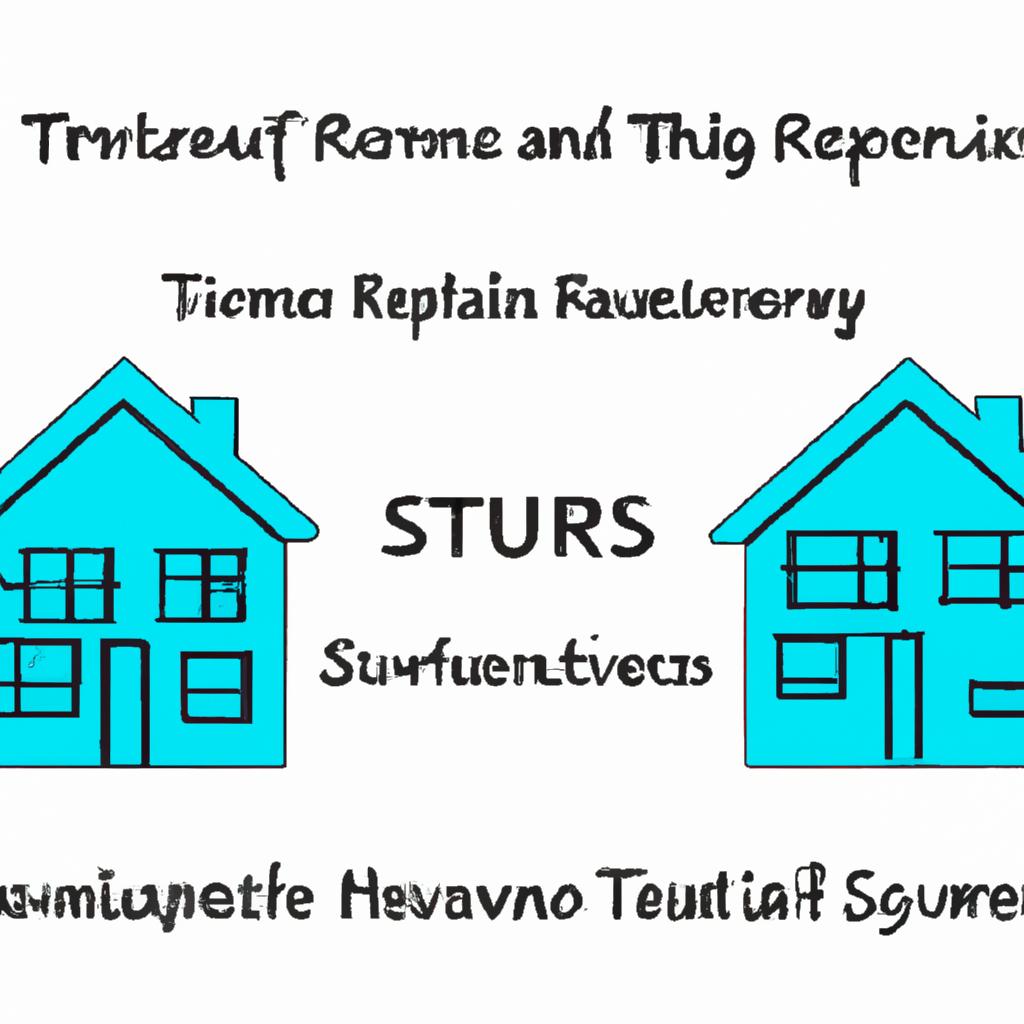As seasoned legal experts at Morgan Legal Group in the heart of New York City, we find ourselves often confronted with the intricate complexities of property ownership and inheritance. The age-old debate between joint tenancy and community property with right of survivorship is a topic that continues to befuddle many individuals seeking to secure their assets for future generations. In this article, we will delve into the nuances of these two legal frameworks, dissecting their features and implications to provide clarity for those navigating the realm of estate planning. Join us as we unravel the mysteries of joint tenancy versus community property with right of survivorship, illuminating the path towards informed decision-making in matters of property ownership and inheritance.
Key Differences Between Joint Tenancy and Community Property with Right of Survivorship
When it comes to estate planning, understanding the differences between joint tenancy and community property with right of survivorship is crucial. Both forms of ownership have their advantages and disadvantages, and it’s important to choose the one that best suits your needs.
Joint Tenancy:
- Requires equal ownership shares
- Allows for the automatic transfer of ownership to the surviving tenant
- Avoids probate process
Community Property with Right of Survivorship:
- Each spouse owns 50% of the property
- Allows for the automatic transfer of ownership to the surviving spouse
- May have tax advantages for spouses

Understanding the Implications of Joint Tenancy for Estate Planning
When it comes to estate planning, understanding the implications of joint tenancy and community property with the right of survivorship is crucial. Both options have their own set of rules and considerations that can greatly impact how assets are distributed upon death.
Joint tenancy is a form of property ownership where two or more individuals own equal shares of the property. In the event of one owner’s death, their share automatically passes to the surviving owner(s) without the need for probate. On the other hand, community property with the right of survivorship is a similar concept, but it is only available in certain states. In community property states, all assets acquired during the marriage are considered community property and are equally owned by both spouses. When one spouse dies, their share automatically passes to the surviving spouse. It is important to consult with an experienced estate planning attorney to determine which option is best suited for your individual circumstances.

Why Community Property with Right of Survivorship May Be Preferable for New York Residents
When it comes to property ownership in New York, residents often have to decide between joint tenancy and community property with right of survivorship. While both options have their own benefits and drawbacks, community property with right of survivorship may be preferable for many New York residents. Here are a few reasons why:
- Avoiding Probate: One of the main advantages of community property with right of survivorship is that it allows the property to pass directly to the surviving spouse without having to go through the probate process. This can save time, money, and hassle for the surviving spouse and their family.
- Equal Ownership: In a community property arrangement, both spouses are considered equal owners of the property. This can provide a sense of security and stability for both spouses, knowing that they both have a claim to the property.

Recommendations for Choosing Between Joint Tenancy and Community Property with Right of Survivorship
When deciding between joint tenancy and community property with the right of survivorship, it is crucial to consider the unique characteristics of each option. Joint tenancy allows for property ownership between two or more individuals, with the right of survivorship ensuring that upon the death of one owner, the property automatically transfers to the surviving owner(s). On the other hand, community property with the right of survivorship is a form of co-ownership where spouses each own an undivided half-interest in the property, and upon the death of one spouse, the surviving spouse automatically inherits the deceased spouse’s share.
For those seeking simplicity and ease of transfer upon death, joint tenancy may be the preferred option. However, for couples looking to maintain equal ownership and financial rights, community property with the right of survivorship could be the better choice. It is essential to consult with a legal professional to determine which option aligns best with your estate planning goals and objectives.
Q&A
Q: What is joint tenancy?
A: Joint tenancy is a type of property ownership where two or more people have equal rights to the property and, in the event of one owner’s death, the surviving owner(s) automatically inherit the deceased owner’s share.
Q: What is community property with right of survivorship?
A: Community property with right of survivorship is a form of property ownership where married couples in community property states own property together and, upon the death of one spouse, the surviving spouse automatically inherits the deceased spouse’s share.
Q: What are the main differences between joint tenancy and community property with right of survivorship?
A: The main difference is that joint tenancy can involve non-married individuals, while community property with right of survivorship is specifically for married couples. Additionally, joint tenancy typically requires a clear intention to create survivorship rights, while community property with right of survivorship automatically includes survivorship rights for married couples.
Q: What are some advantages of joint tenancy?
A: Joint tenancy allows for easy transfer of ownership upon the death of one owner, avoiding probate proceedings. It also provides a clear method for passing on property to the surviving owner(s).
Q: What are some advantages of community property with right of survivorship?
A: Community property with right of survivorship ensures that property assets are automatically passed on to the surviving spouse without the need for probate. It also provides a straightforward way to handle joint ownership of property for married couples.
Q: How can individuals determine which option is best for them?
A: Individuals should consider their relationship to the co-owner (spouse vs non-spouse), their desire for automatic survivorship rights, and their state’s laws regarding property ownership when deciding between joint tenancy and community property with right of survivorship. Consulting with a legal professional can also help in making an informed decision.
Insights and Conclusions
In conclusion, when deciding between joint tenancy and community property with right of survivorship, it is important to carefully consider your individual circumstances and goals. Both forms of property ownership have their own advantages and potential drawbacks, so be sure to consult with a legal professional to determine which option best suits your needs. Ultimately, choosing the right ownership structure can provide peace of mind and ensure that your assets are protected for the future. Thank you for reading, and best of luck in your decision-making process.

